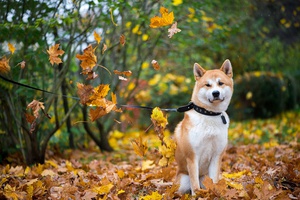The leaves are falling and the pumpkins are reaching their proper jack ‘o lantern size. Soon children everywhere will be dining on a steady diet of Halloween candy while many of us adults relive our youth by taking full advantage of the one day every year we can pretend to be someone (or something) else. Though many dogs also enjoy the excitement that Halloween brings, this time of year can present additional hazards and stressors for our canine friends.
Alcohol and Junk Food
Although Halloween parties in 2020 are likely to be much different than in years past, our opportunistic dogs are still likely to find themselves around more potentially dangerous food and drink than is typical in their daily lives. A cocktail placed at dog height or a single plate of carelessly placed food have been known to ruin more than one celebratory day.
Alcoholic beverages are a particular concern for dogs during holidays and celebrations. Dogs under the influence of alcohol tend to suffer the same consequences as their overindulgent human counterparts including drowsiness, vomiting, lack of coordination, and slow reflexes. Dogs consuming toxic levels of alcohol may experience depression, breathing and heart rate abnormalities, collapse, low ...

